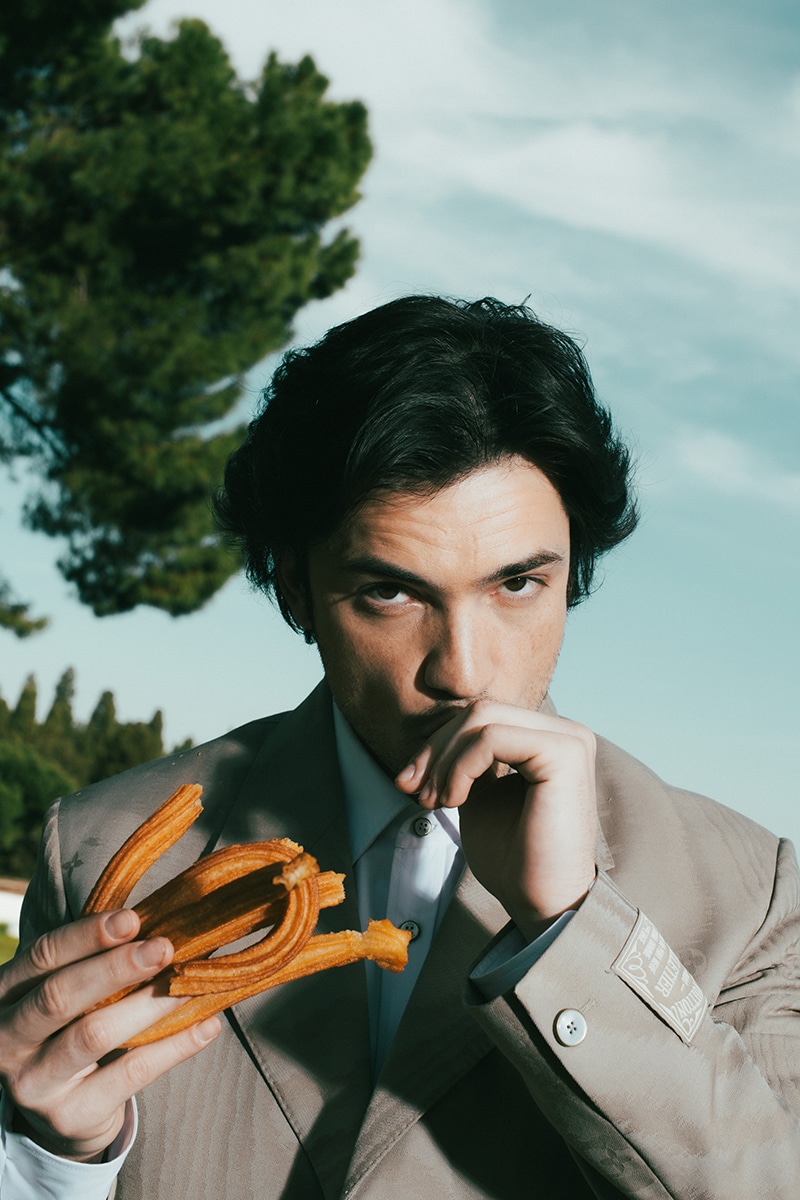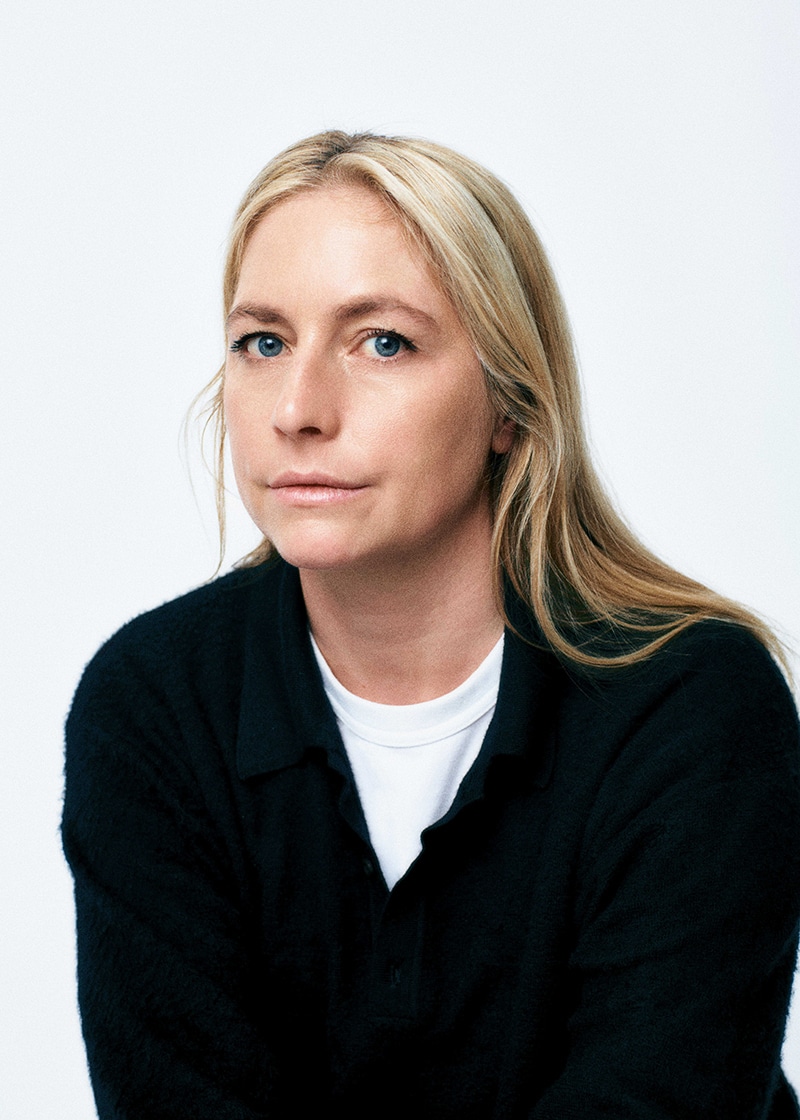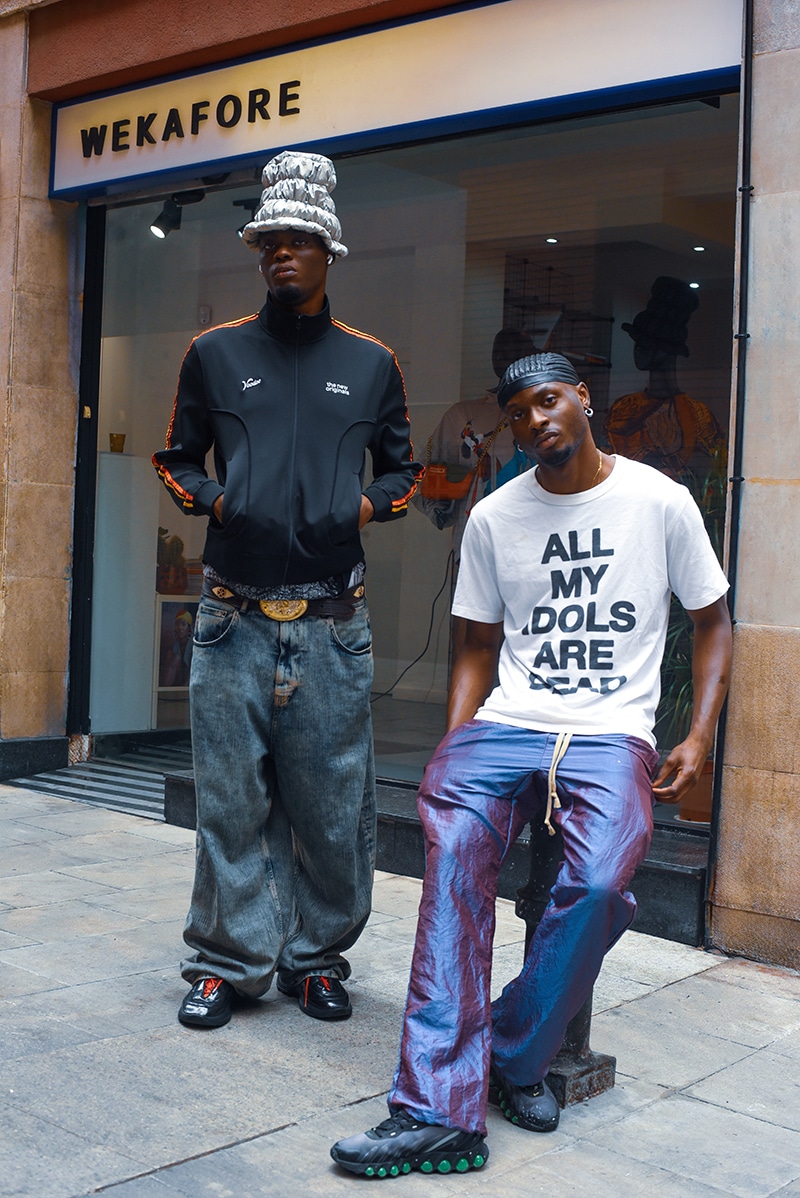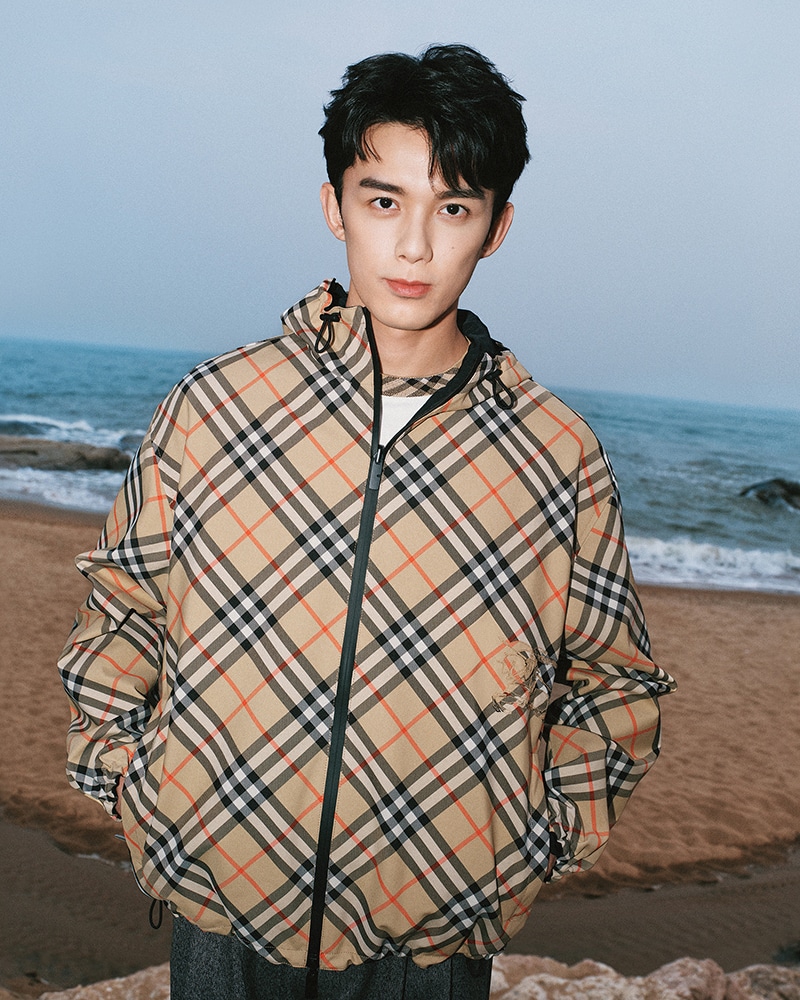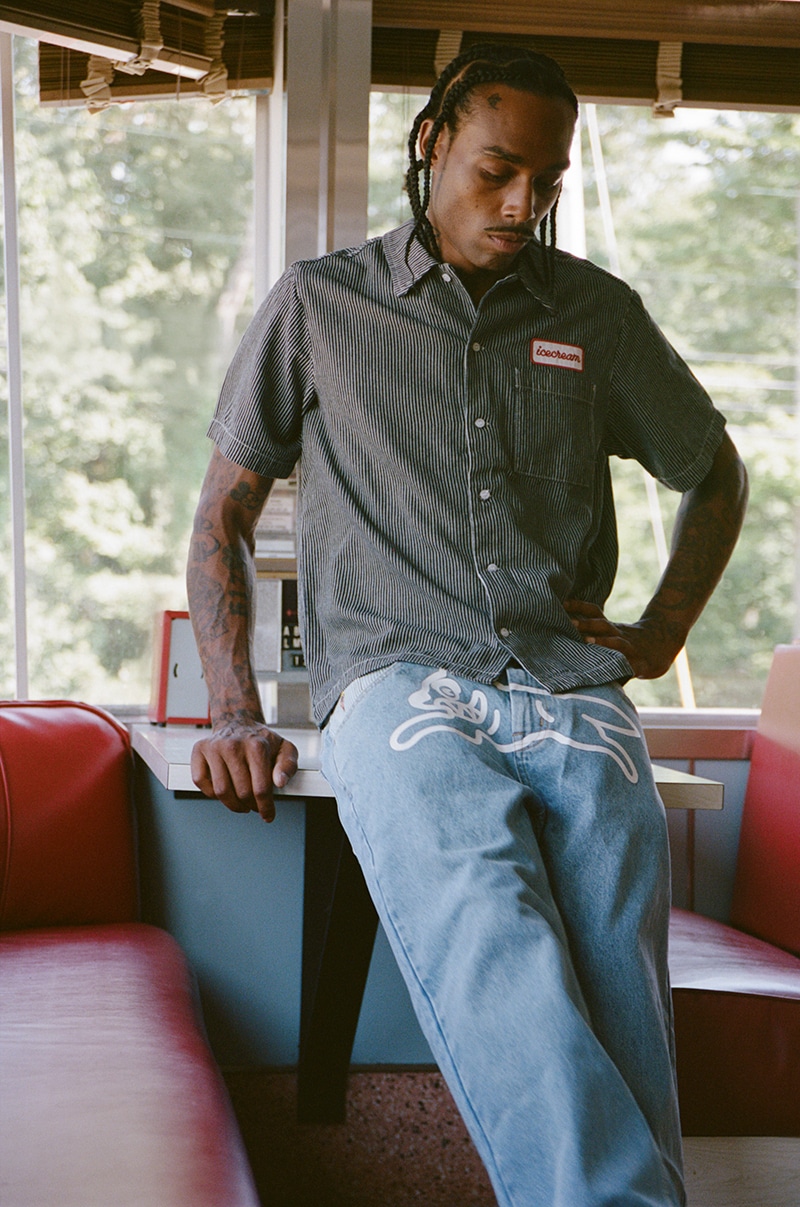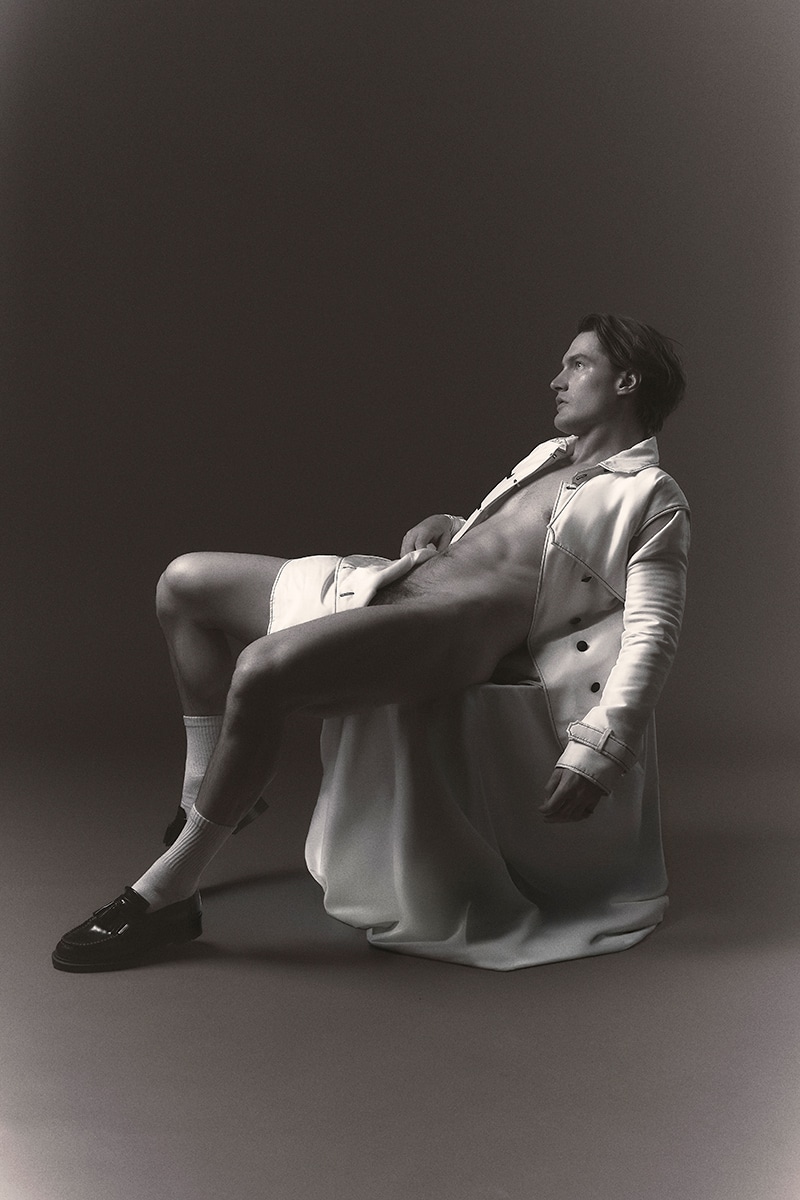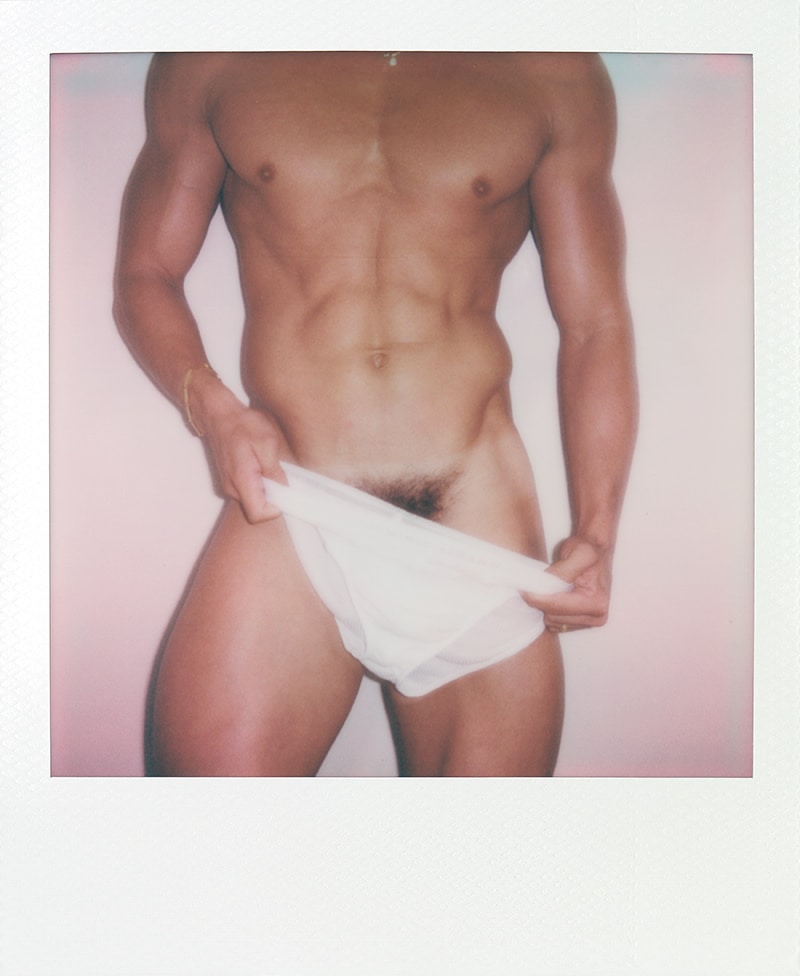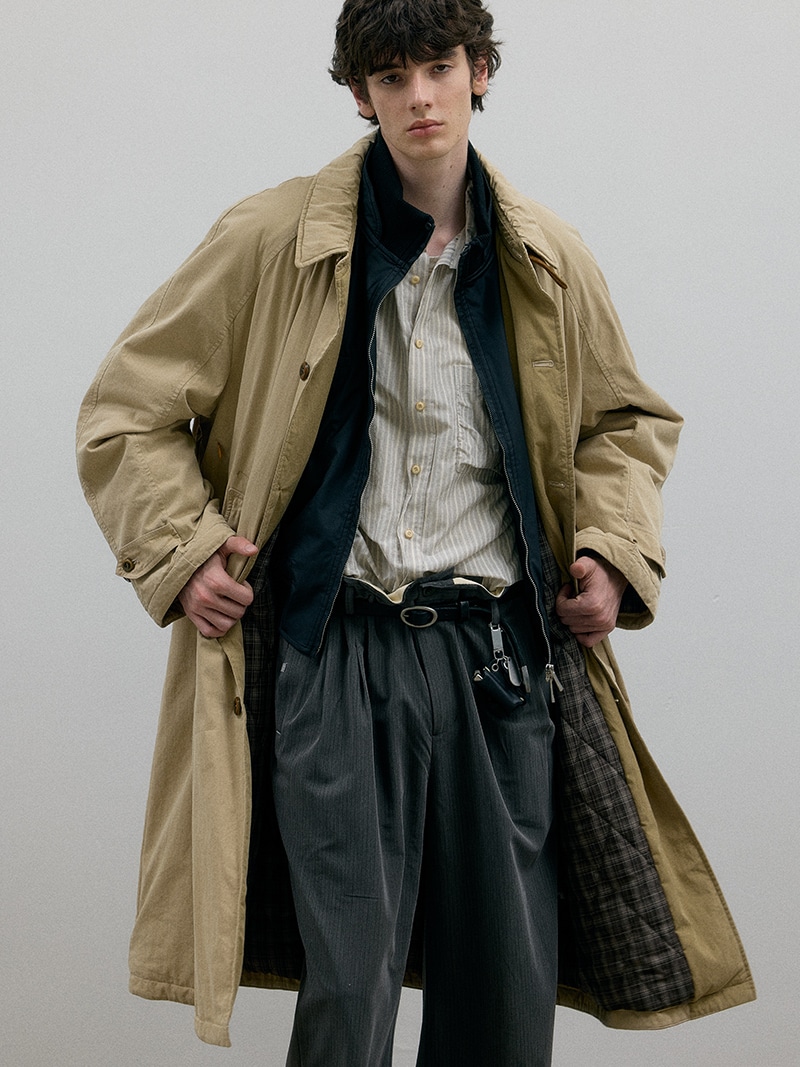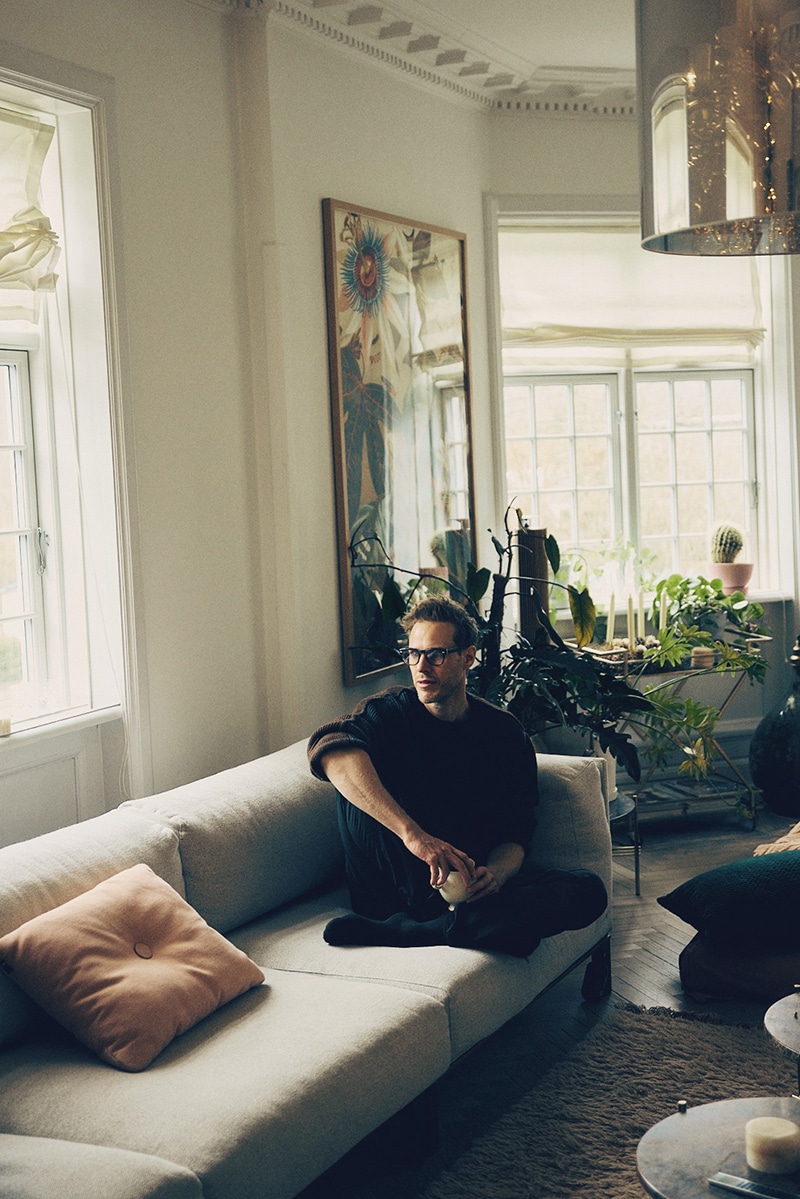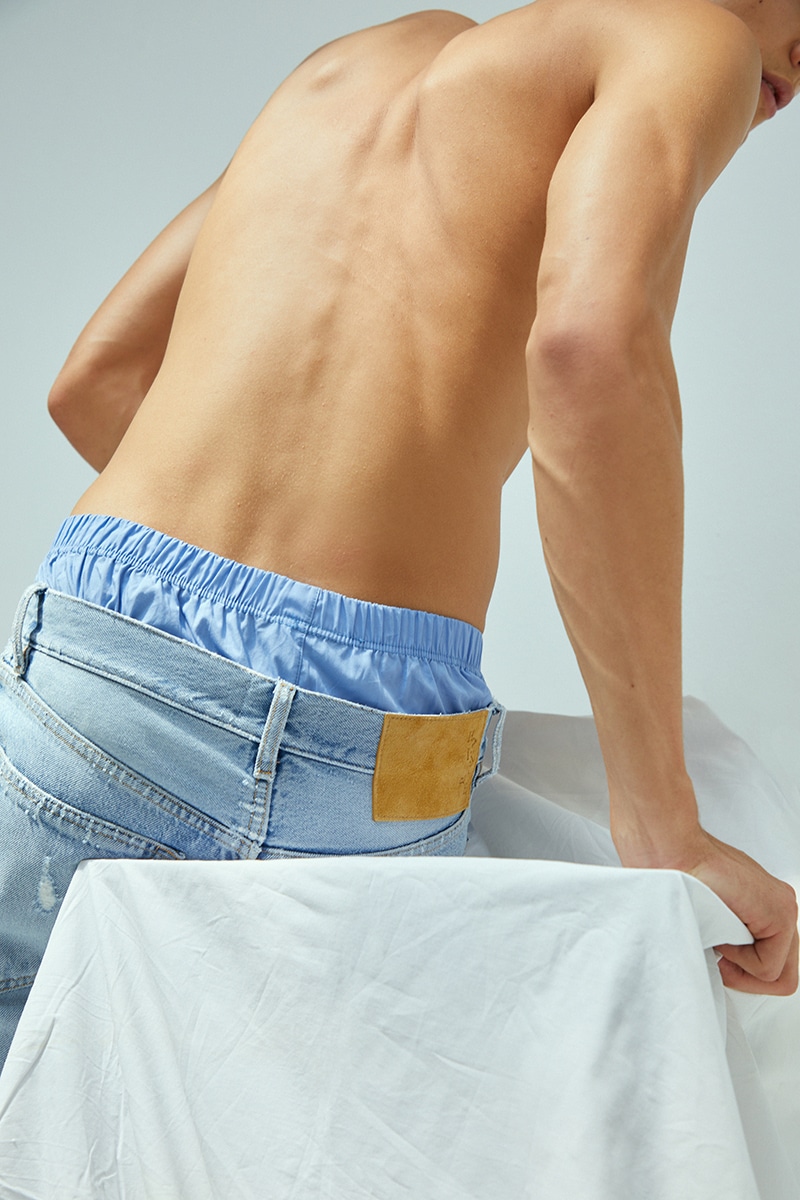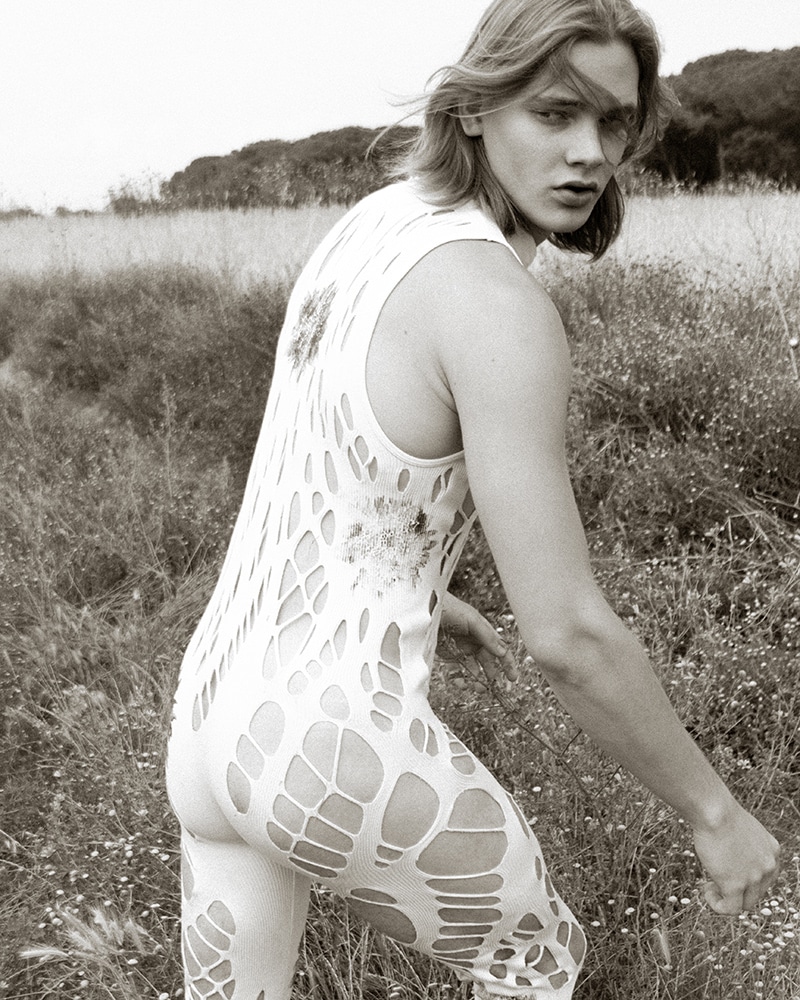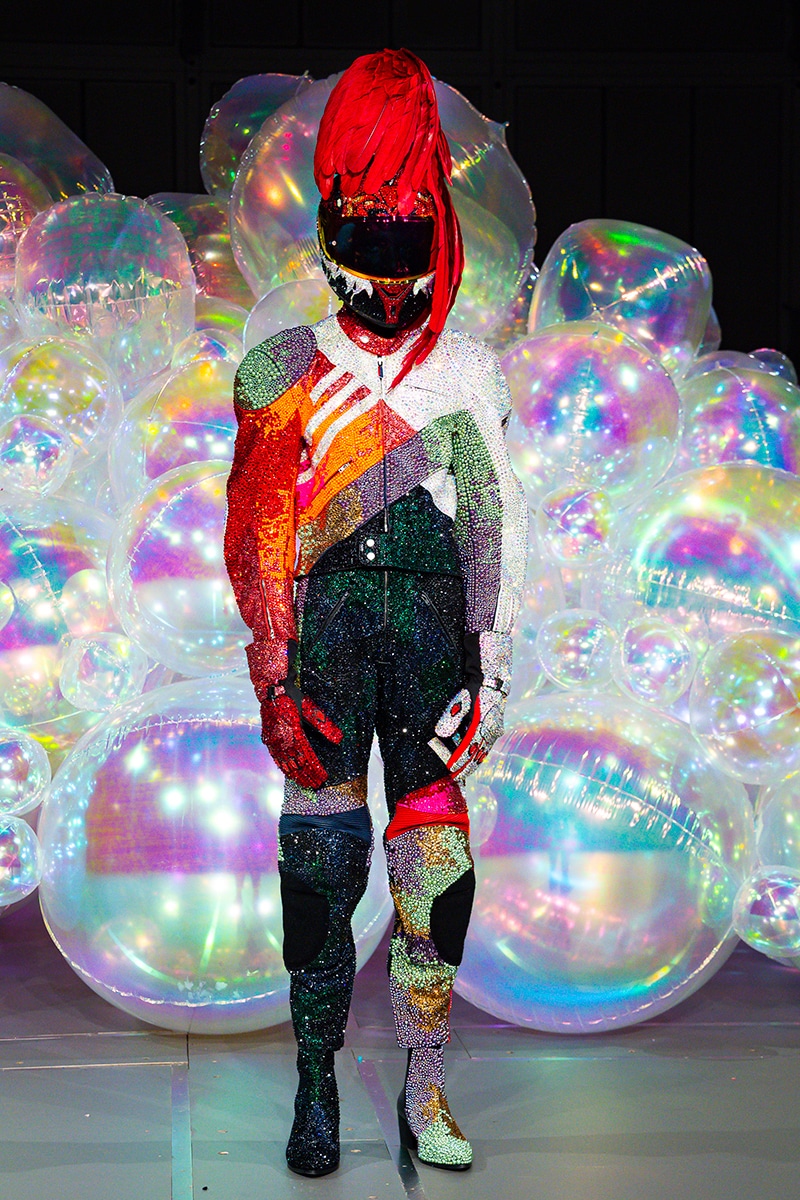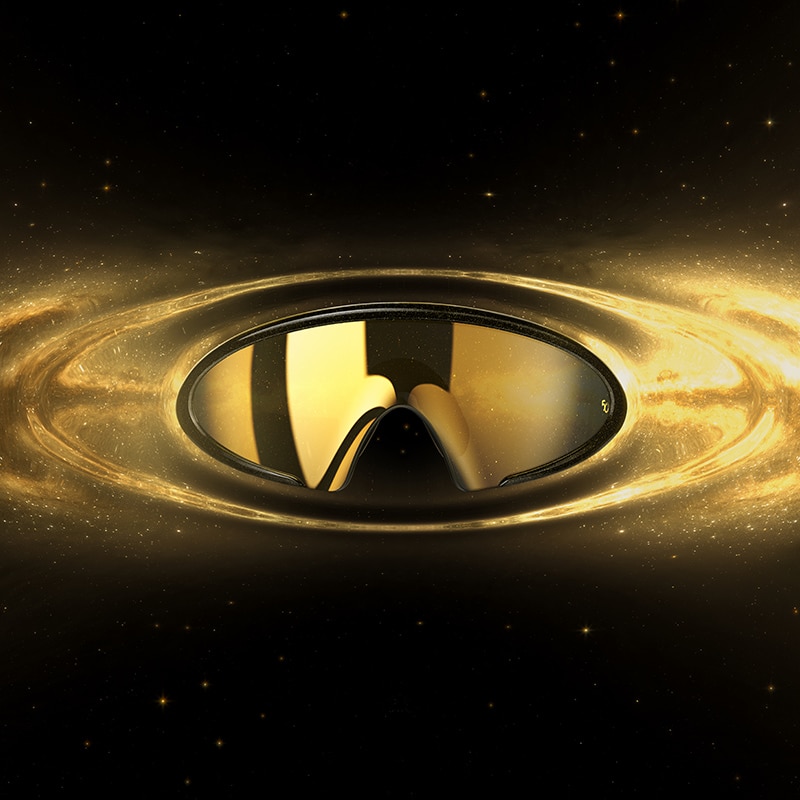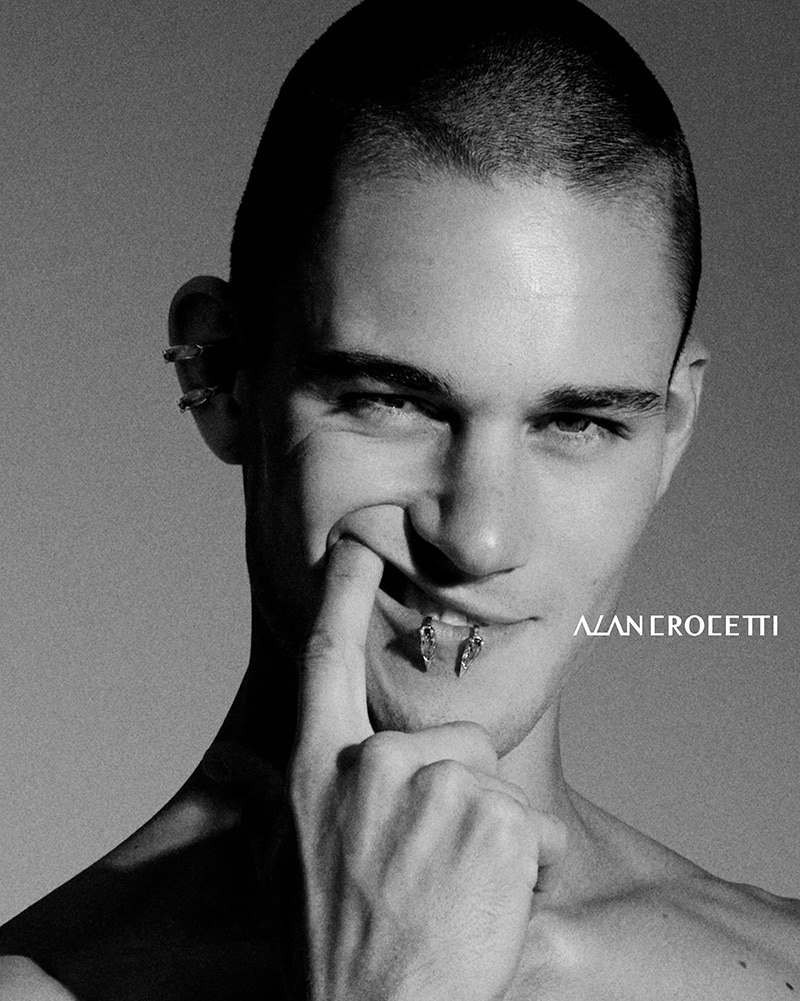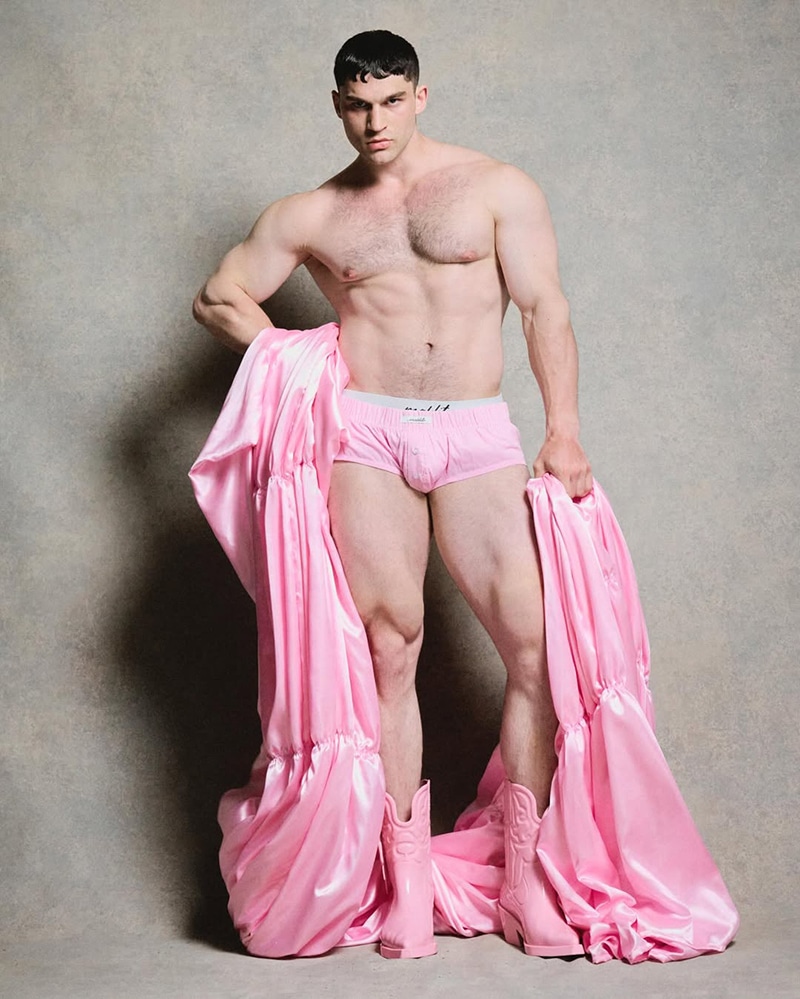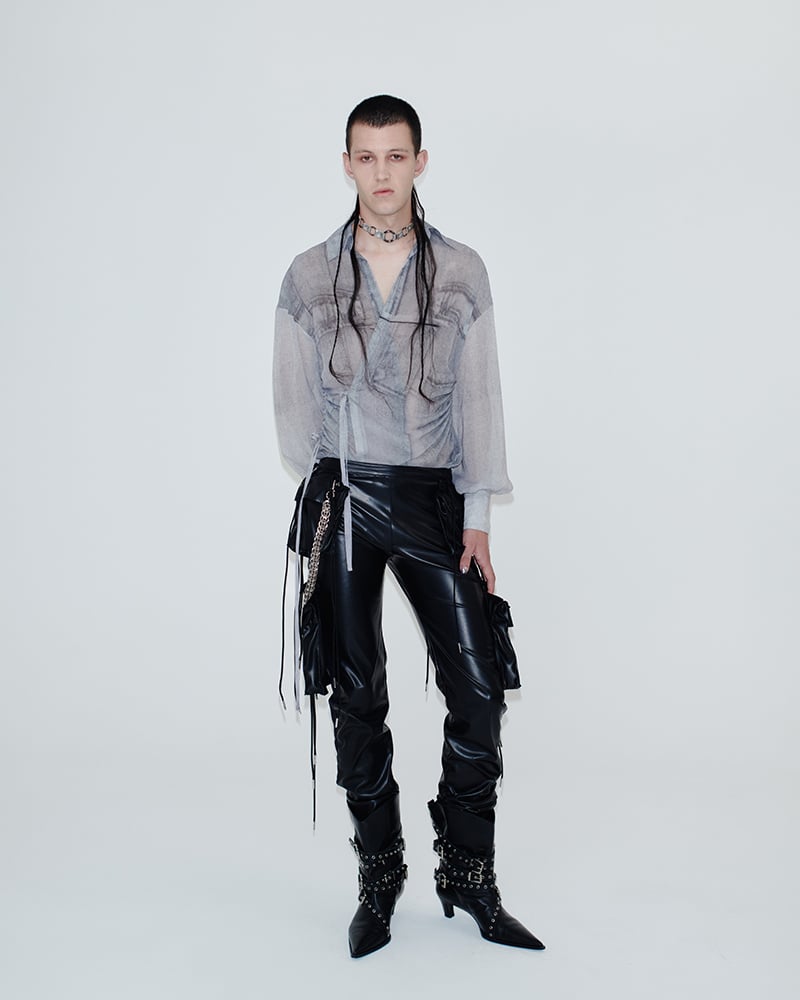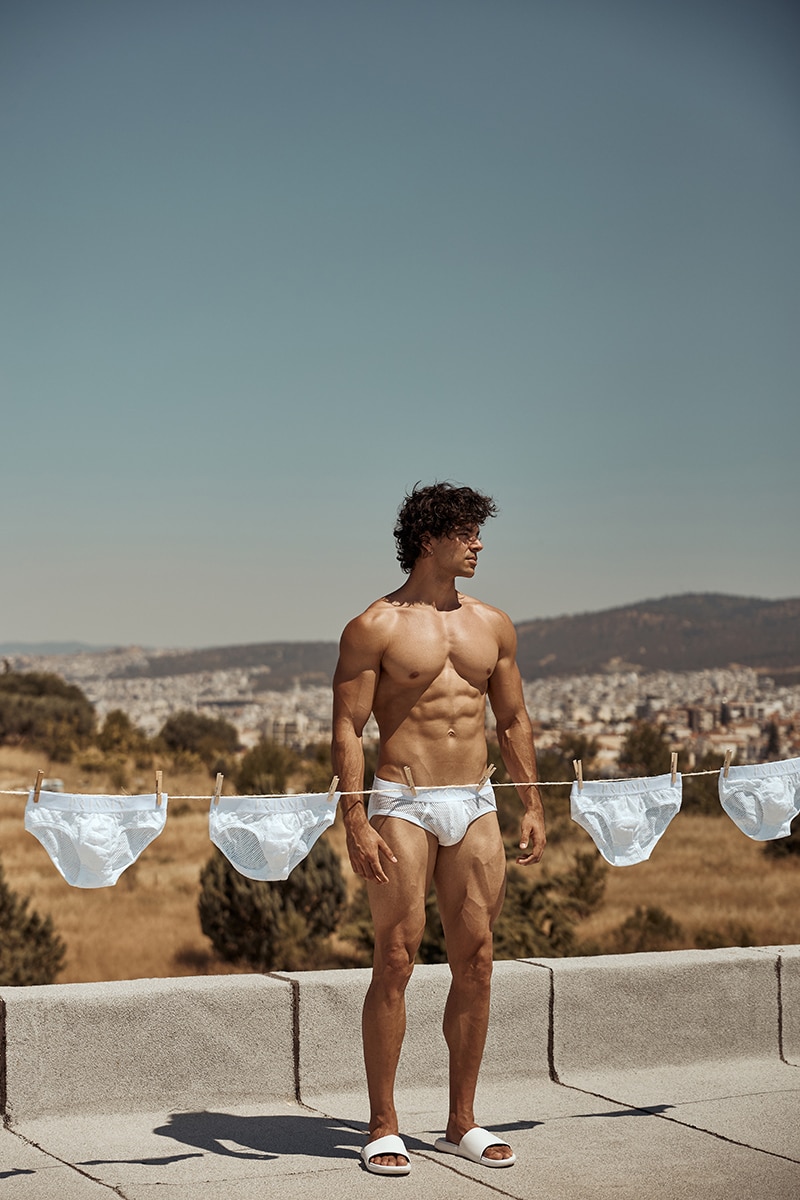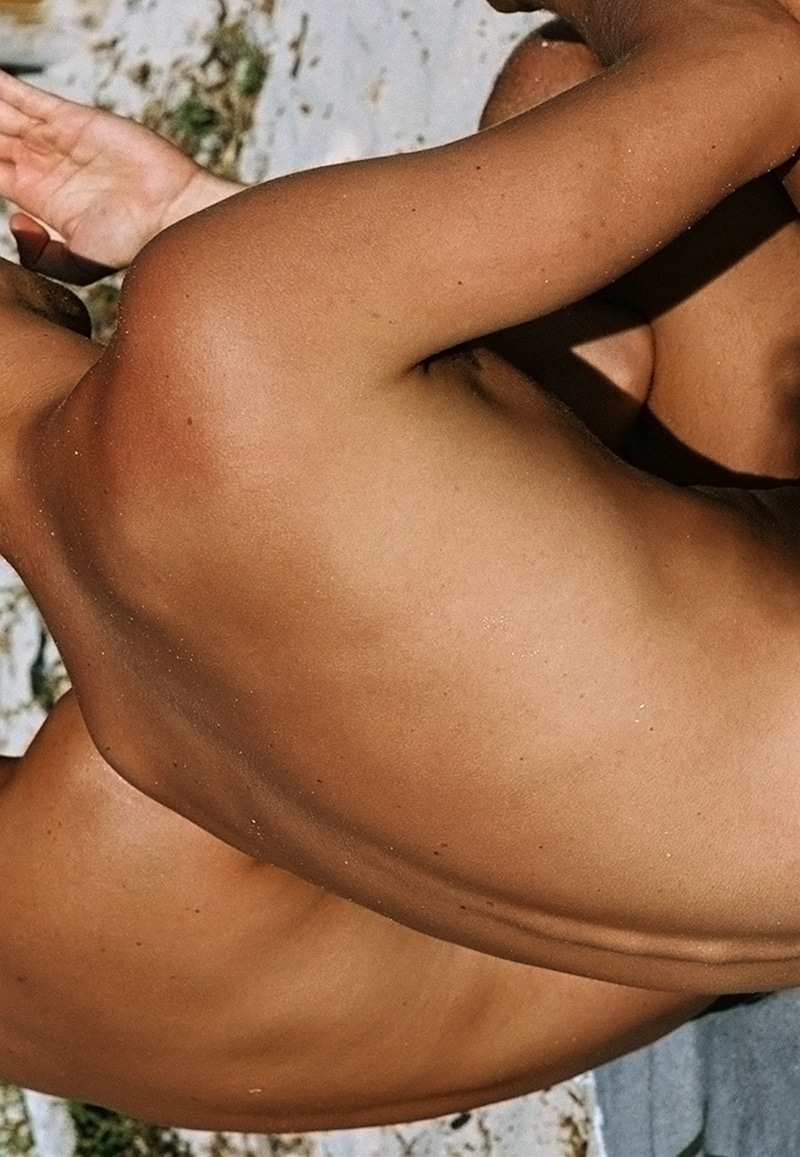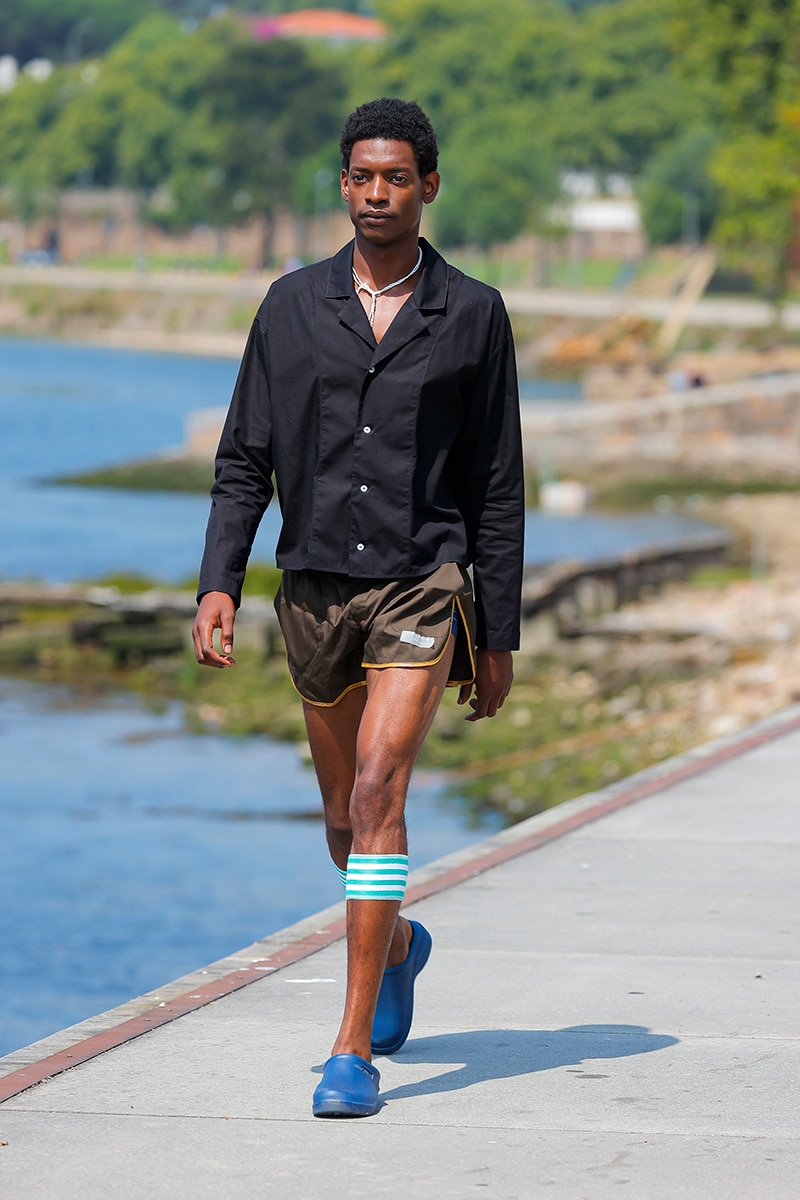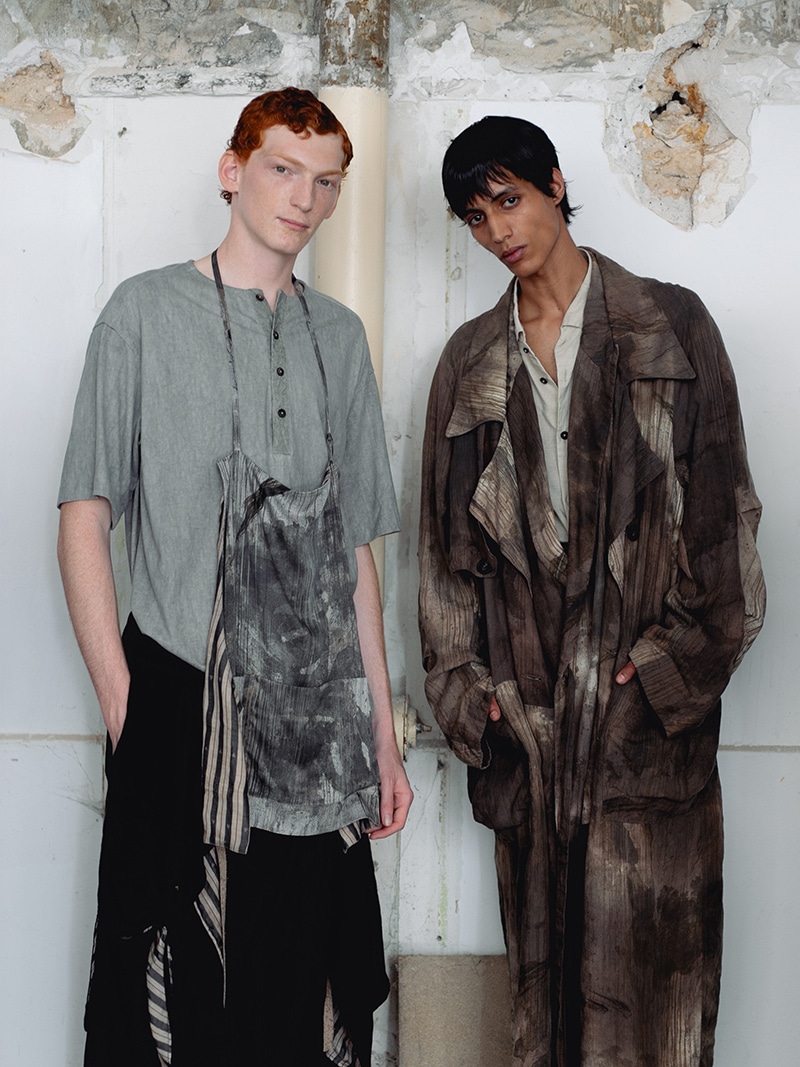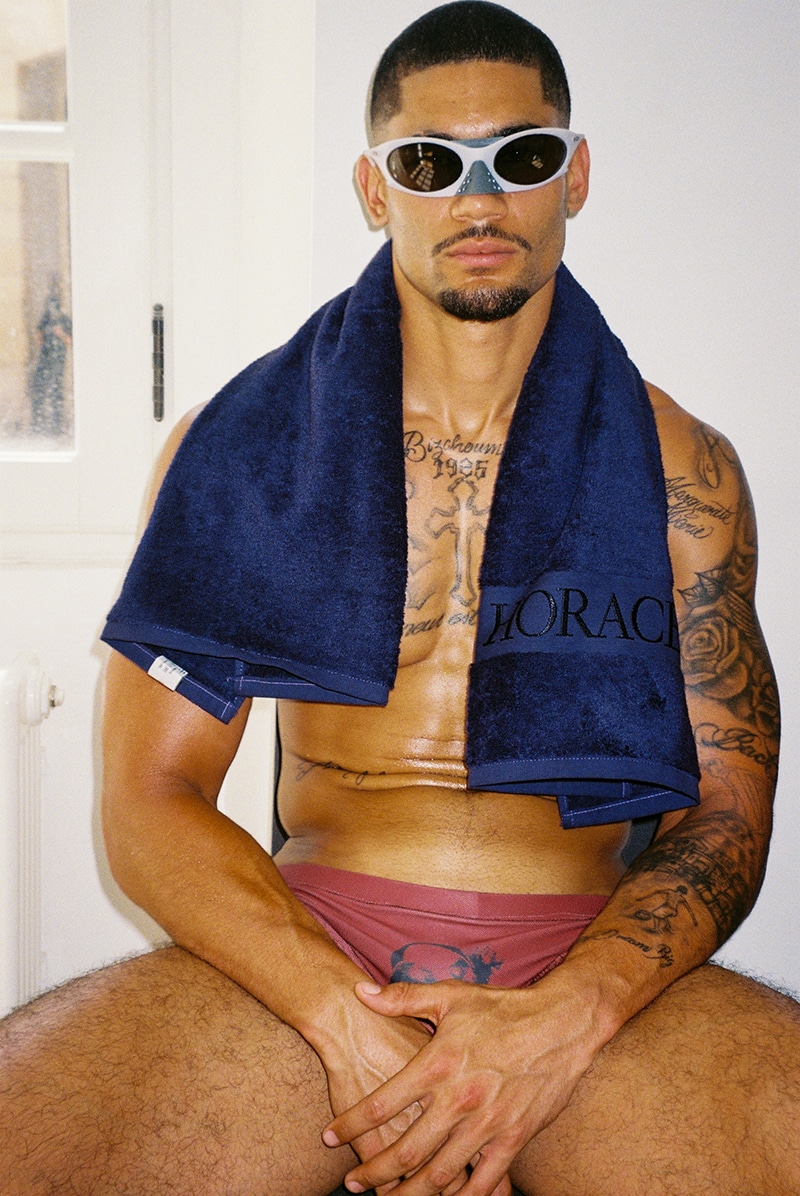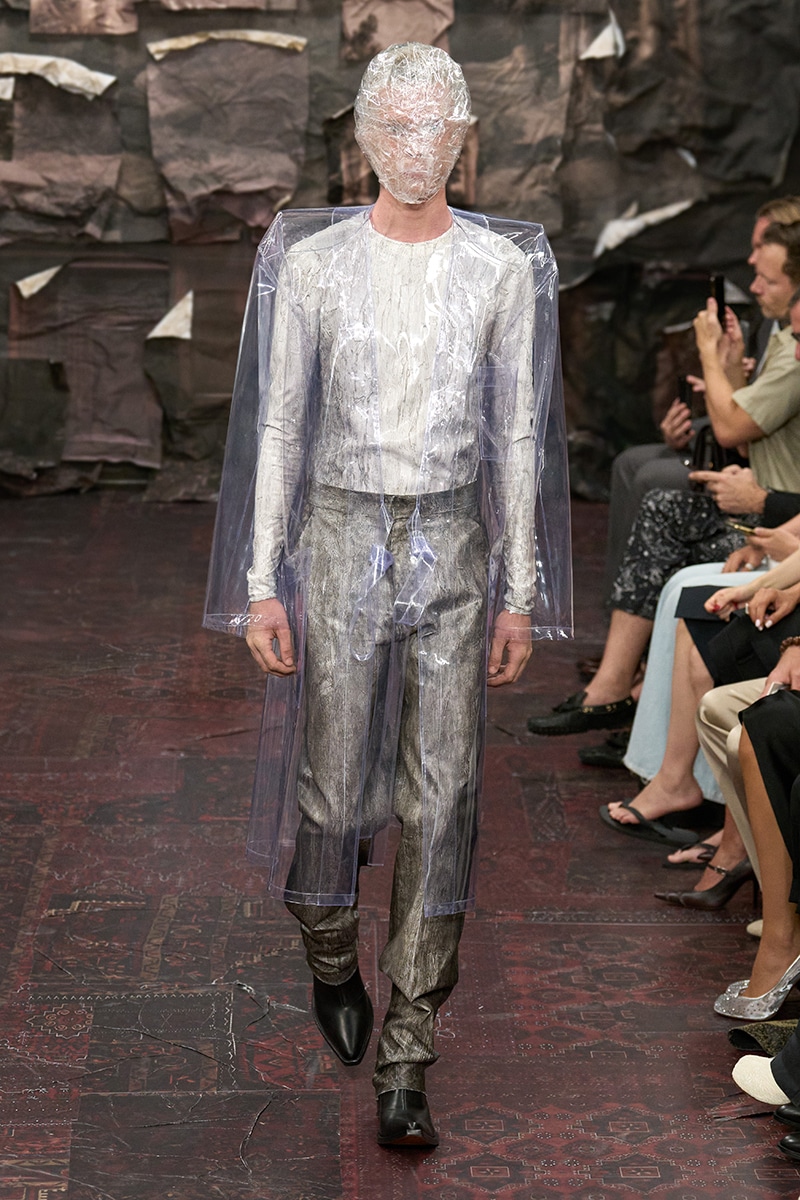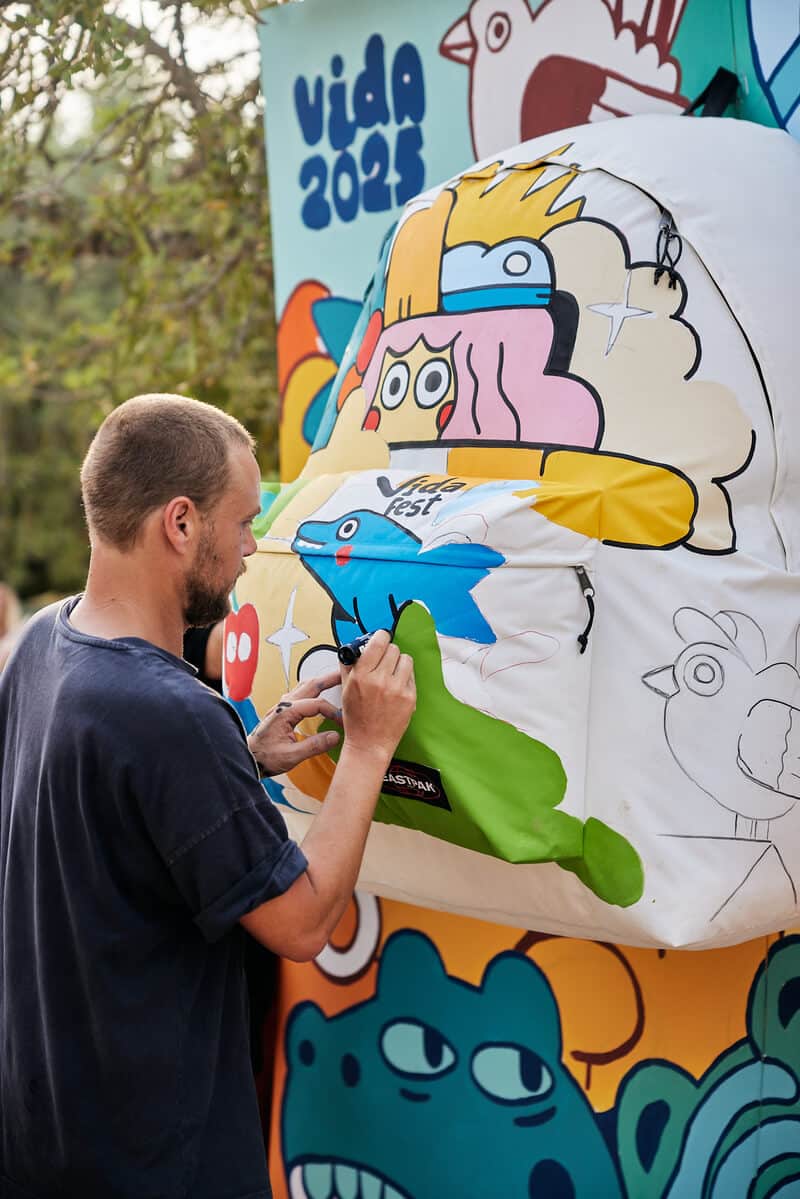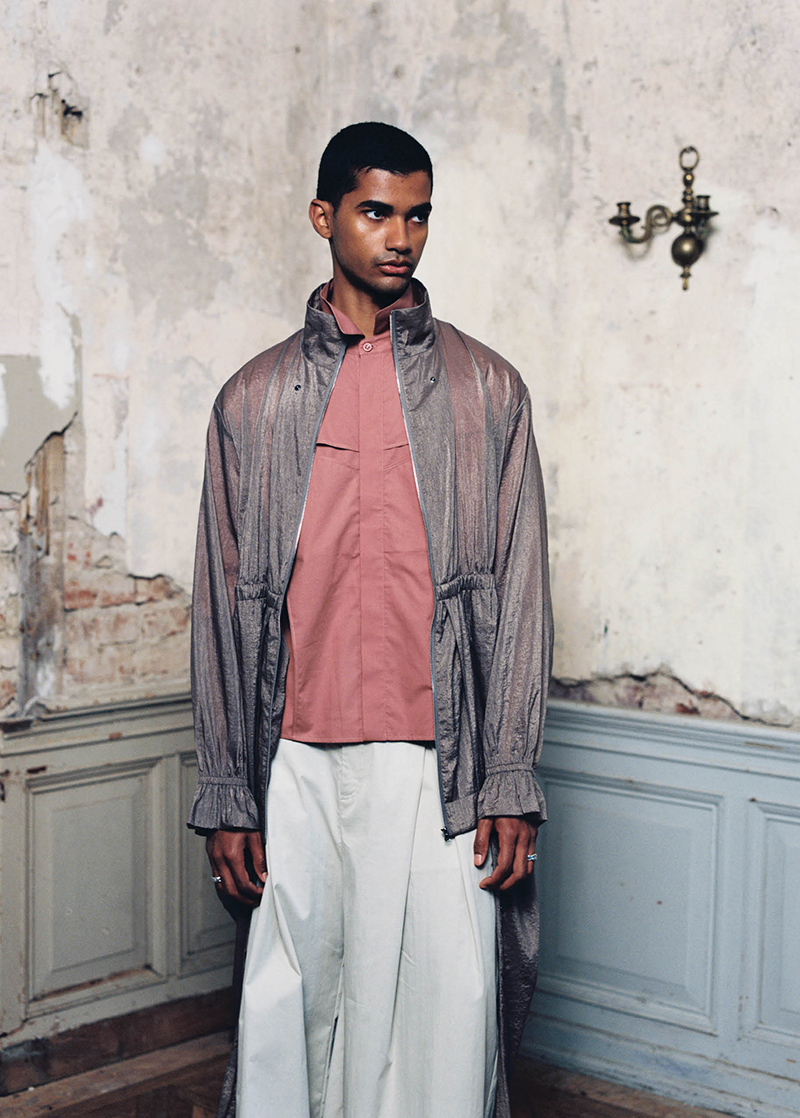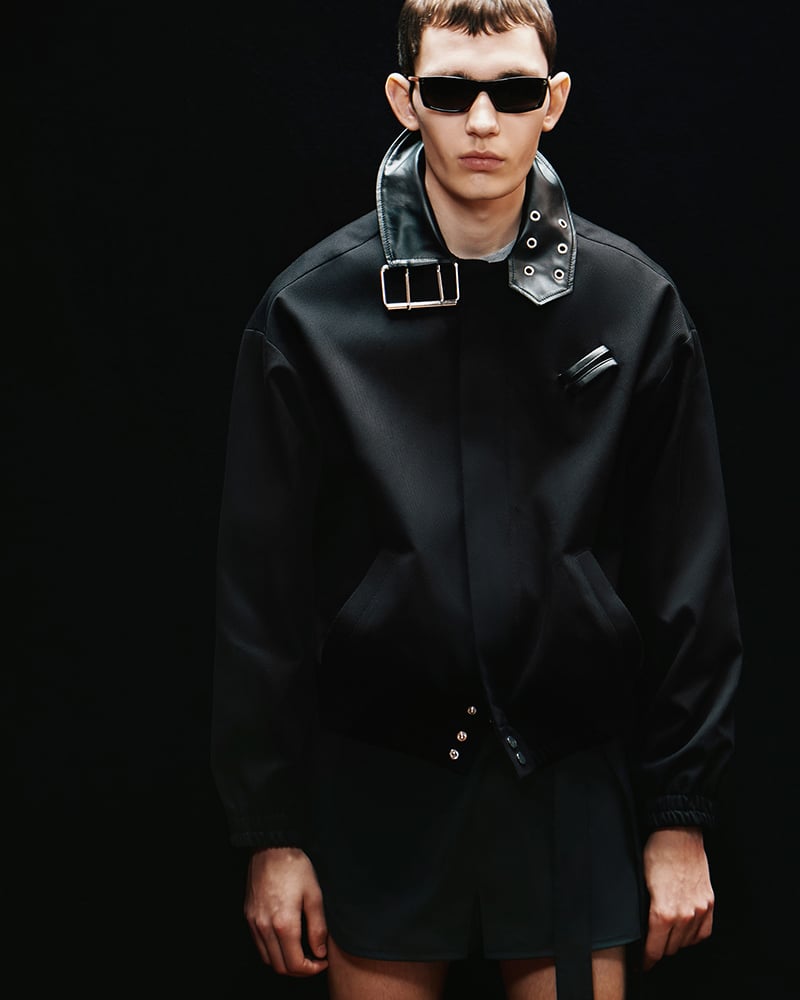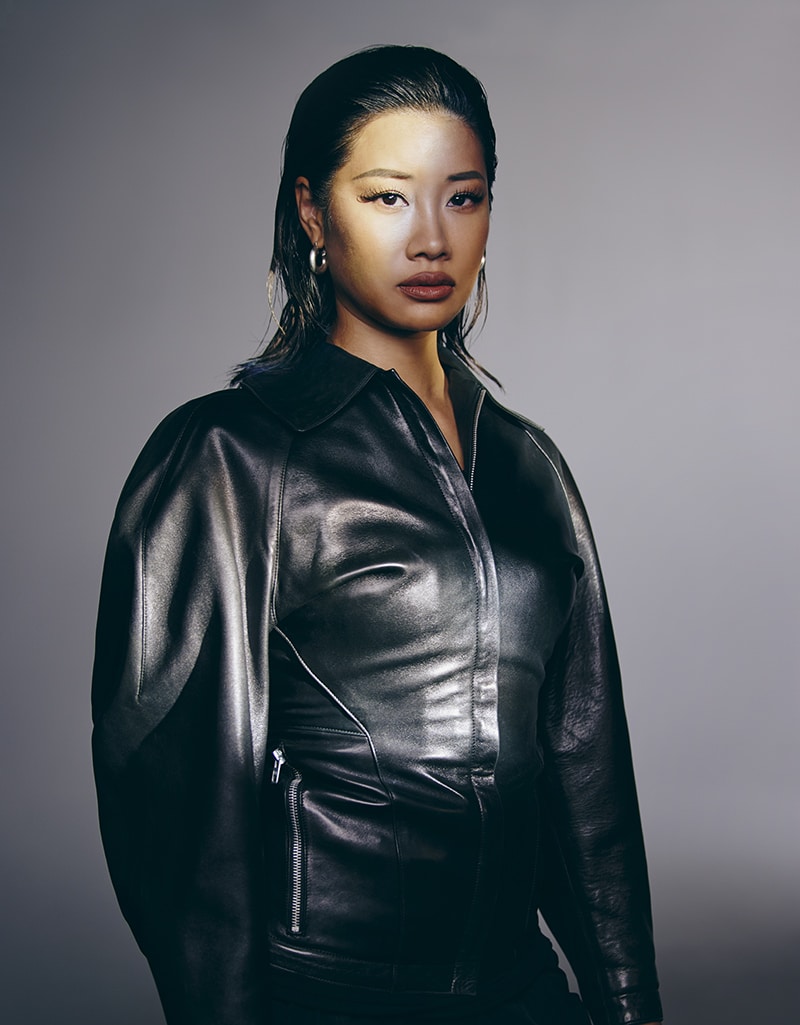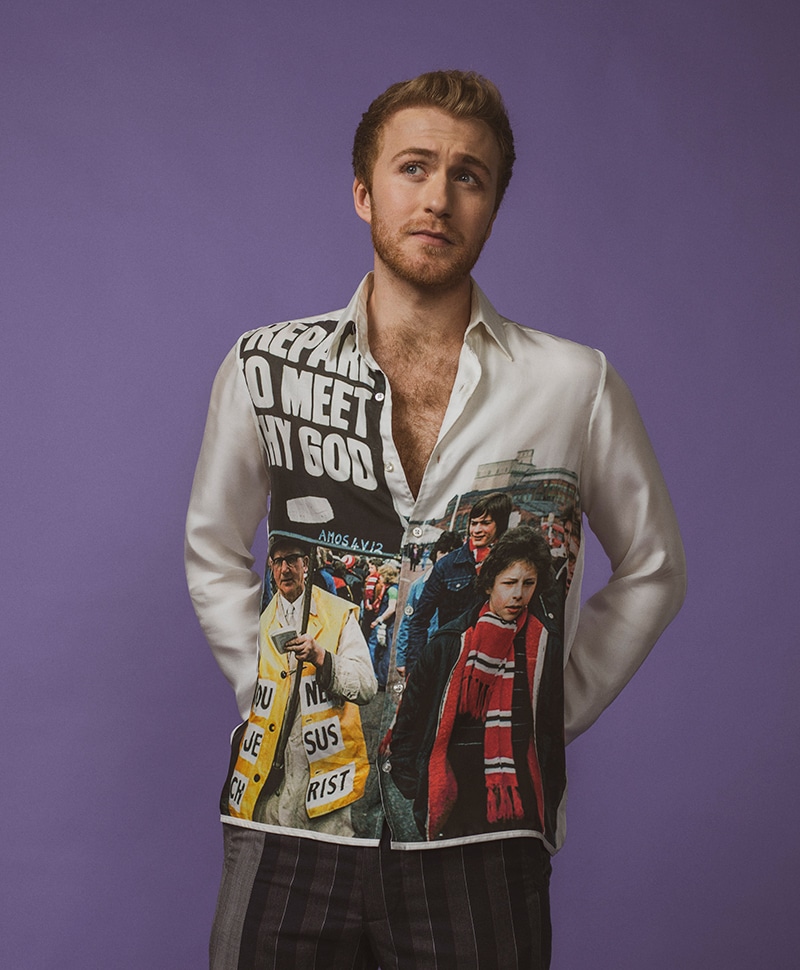
Bristol-born Jordan Waller is just 27, but he has quite a story to tell. Child of a trio of lesbian parents —Miranda, Jane, and Dawn — he is known for the roles of Randolph Churchill in Darkest Hour and Lord Alfred Paiget in ITV’s drama series Victoria. He has also written and will star in the ‘Brexit comedy horror’ Two Head Creek as well as having penned the upcoming feature film Off the Rails, in which he also has a part. The recent experience of losing one of his mothers (Dawn) is what inspired his one-man show The D Word, which received highly enthusiastic reviews at the London Vaults Festival, and is now hitting stage at the Edinburgh Fringe Festival from 1st to the 11th August with the new title Son of Dyke and an adapted script due to having met his sperm donor father for the first time. Even if always euphoric when performing, it is writing which he enjoys the most, partly because writing down his story has become a cathartic tool for him and he hopes that the subject matter might resonate with people who hear it.
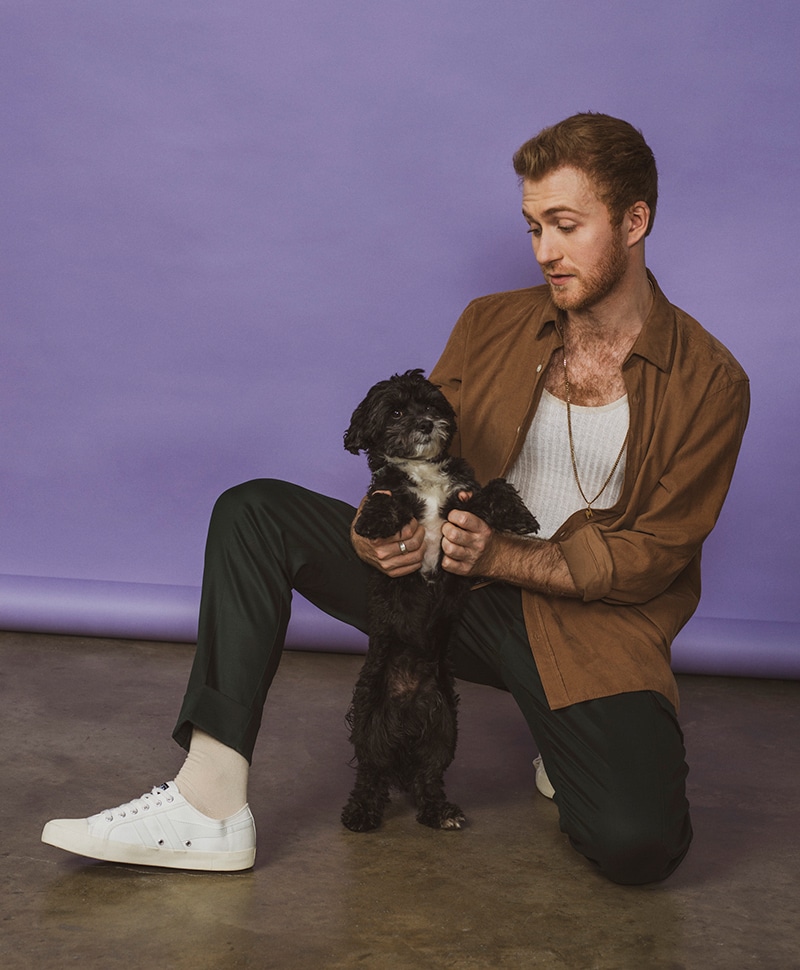
What about your childhood in Bristol?
Growing up there in the early 90s, there weren’t many families like mine. It’s now a very liberal place and I kinda call it a ‘lesbian riviera’, but back then it was quite closed off and I felt I couldn’t share the reality of my unique lesbian family with the outside world until I was probably about 11 years old.
Why did you?
Because Dawn’s ex hated that she ‘had become’ a lesbian and he threatened to report my moms to social services to have me and my sister (Dawn’s daughter) removed from them as they were living what 20 years ago was considered something no different from pedophilia. We were also quite isolated and we didn’t know a lot of other families in our position. Nobody else at school had gay parents, so for fear of bullying we kept it closed in until Dawn and my mom broke up and she got together with another woman called Jane, who I like to call a 100 footer – you can tell she is a lesbian from 100 feet away. One day when I was 5 years old, Jane picked me up from school and said very loudly “I am Miranda’s partner”, so it got spread around school that my mom was gay and I had to leave because I was terribly bullied. It was only later, around 2000/2002, when the climate had a little bit changed and the kids were slightly older — and frankly more intelligent as well because I was attending a grammar school — that I could finally be free about who I was. It became very cool and suddenly everybody was really jealous that I had two moms.
So, you didn’t feel that you were different, did you?
No. It felt totally normal having two mothers. It was really weird to see friends that had fathers at home because they were alien figures to me. To be honest, I think it made me particularly interested in things like penises, which I had never really seen before. I was obsessed with other men’s penises and with my own. I don’t know if this is the reason why I am gay, but certainly, it could be and it would be OK.
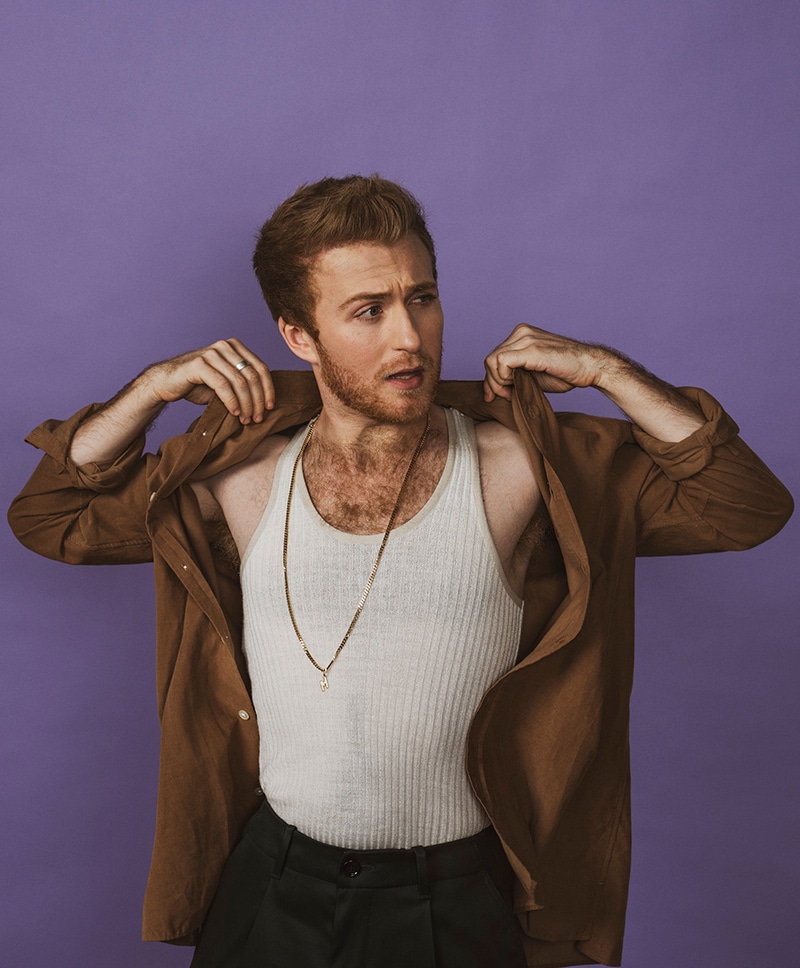
What about those against gay parenting then, because they believe they may influence their children?
I think us gays have to state we were born this way because, unfortunately, we are so persecuted by stupid people who can’t take both natures and nurture into account. Being gay is an interplay of who you are, but also whether you’re able to accept it. So, there is a difference between that and just sleeping with men. Being gay instead is a political declaration, saying: “I am going to live my life like this.”
Of course, I have considered what makes me who I am, but I constantly find myself having to explain it to people who don’t get it, and it is tiring and annoying. Fundamentally, the question about gay parenting shouldn’t matter. If we are going to answer it, gay parents don’t have more gay children or less, statistically speaking. I believe the great thing of having gay parents is that you’re more open to different possibilities and more likely to come to terms with having these feelings rather than repressing them. This would be the only reason why gay parenting may liberalize society, but it has been seen as a good thing because it means that we are more honest about who we truly are.
Was it easier then for you to tell your parents you were gay?
My mom told me that when I was 11. She just said: “So baby, how long have you been thinking you’re gay?”, and I felt slightly accosted because I wasn’t sure exactly what I was thinking. Obviously, I had broken my computer by downloading lots of gay porn, so this is probably what gave it away, but by motherly intuition, she knew, and I think deep down I did as well. I had a boyfriend from when I was 11 to 14…
That’s quite early!
Very early! So yeah, it has been entirely normal and a completely different journey. I mean, I did feel a bit sad that my mom kind of robbed me of coming out, because I wouldn’t have minded a moment and maybe a cake and I didn’t get that. But in my family, it is just kind of like “so what, we have a right to exist.”
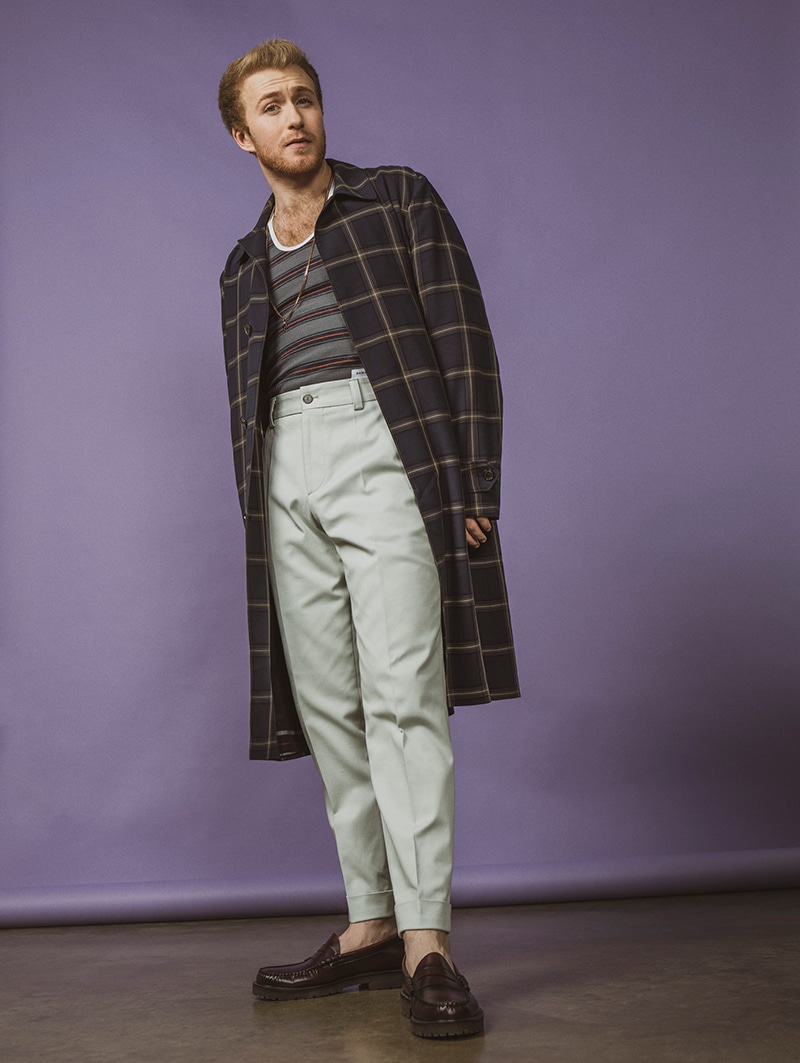
What’s your relationship with the word “normal”?
Much complicated, and it keeps me up at night in a big way. Just last month I met my sperm donor, which was one of the most difficult experiences I have ever gone through. All at once, I have a father — well, a sperm donor not a father — and he’s very normal, very catholic, and sees the world in a totally different way than I do. I had to come to terms with this man who I don’t necessarily want to be in my life, but who is and whose semen is quite literally all over me, every time of the day. I am not sure how useful the word ‘normal’ is though. It means everything and nothing. Certainly, we are all different and that is what makes us normal. At the same time, nobody wants to be normal anymore. I spent my first 18 years trying to fit in and I am going to spend the next 60 trying to stand out, and it is fucking ridiculous! Now I have to start to consider words like ‘normal’ again because I found myself maybe being a bit normal after meeting him and I don’t want to be. Suddenly, I am feeling I am like everybody else: boring and human. But maybe ‘human’ is a better word and is what we should all be using.
Why did you decide to meet him?
When I was 18 I had collected information about him and I was told he was anonymous. I accepted that and built my own mythology around him, but then while doing Son of Dyke I wanted to find out more about myself, so I applied for information about my donor siblings. I was then told by the clinic that actually he had lifted his anonymity, but they just got it wrong. So, due to that big fuck up, I abruptly had the information that I could meet him, which was something I never wanted to do. I had made peace in a way with the absence of this figure in my life, and I quite enjoyed it because it meant I wasn’t normal and that I was interesting.
However, knowing that I could I would end up doing it anyway, so I did. And meeting him was always going to be a little disappointing because in my mind I had imagined a Nobel Prize winner, an astronaut or so. And instead, it was just a man. It was very strange for me to meet this bloke, who was fine and very nice, but at the same time, he wasn’t the answer that I necessarily wanted. And I think we have to reflect on how we conceive of what being a father and a mother means. And, as I said, he’s not my father, but he doesn’t see it like that because of his religion, and it makes it very difficult for us to start from the same place. But it is an ongoing discovery process that we are going through together.
Was it disappointing because the more important the relationship is the more we build fantasies around it?
Exactly! With your parents, you came to that point when you realize that they are just human beings. Beforehand they are ‘your gods’ and you think they are perfect. Meeting this guy when I am 27 and he’s just gone 50 makes you see it straight away.
How did your interest in acting start?
I always had to perform my identity for various people that I met, especially when I was a teenager. I would do funny impressions of different lesbians that I knew — I had a book called ‘Endykelopedia’, which was like Pokémon with gay women, and I would show that to my friends — and it was a way to make people laugh and make myself understood. So, performance has always been in me as well as the need to do it and to be validated. In fact, as opposed to just say that being gay is an incidental part of me, I would say it is fundamental to who I am as a person today.
Do you think that need pushed you on a creative path?
Basically, we all want to be accepted, yet in a way we don’t, because the moment we are we become normal and don’t have anything more to say. This is why I am convinced artists should always fight against their own ability to be understood and keep finding new forms of expression to say something different. An interesting part with the whole gay experience is that we all want to be accepted and be like everybody else. We want marriage and we want kids. We just want to blend in, and I completely disagree with that. We are better than that and our unique experience needs to be given its own different section in society. We have to fight for those boundaries instead of trying not just assimilate into failed institutions like marriage. Not that I am saying that we shouldn’t have unions, but we must bring our creative unions into the fold and keep challenging the tenets of marriage and the way children are brought in because it might not be the best way. If there is anything I want to do in my career is to show that being gay means being different, and that is OK. Otherwise, life would be boring and everybody would be badly dressed.
Do we still need to depict gay love in the entertainment industry?
More than ever! I mean, first of all, people love gay love. Fans have been mad about Lord Alfred and Drummond from Victoria, and I still get messages even though it happens back two years ago. We need to keep telling their stories, the difficulty we have is that they are so poorly documented. Our whole history has been obliterated, even though we have literally built the whole world: the houses we live in, the delicious food we eat, the clothes we wear… and the dance. Culture is gay, yet somehow it’s been completely forgotten because the only contact history has had with gay people is through anti-sodomy laws, killing them, scandals in victorian England, Alan Touring being put into electric shock therapy. And the AIDS crisis. This is basically our whole history, and it is disgusting. Therefore, I think that what we should be doing right now is exactly what Victoria is doing. We should be going back to lesser told stories and use our imagination to give them a valid place through drama because drama and creativity can influence how we conceive the contribution people made to society. It is a way to make it up and is valid to do that because we just haven’t had our story told so we’ve got to just shout louder. The time is right, and of course, these stories happened, because gay sex is so fun! Also, it could be argued that gay people are more clever than everybody else. We are in all the top universities, we are all the top artists. So, let’s ask that question! People want to know if gay parents create gay children, but why aren’t they asking why gay people are better than straight people, because actually, the fucking evidence is there. Homosexuality makes you better. If you wanna save the world… homosexuality!
Is it true then that when you come out you can only play gay roles?
It is very difficult for a gay actor to come out because then you are pushed into this very small section of roles. So, even though coming from where I come from and always being proud of myself, for almost six months I didn’t want talk about it and I am ashamed of it — it’s pathetic — but now I have to talk about that shame because it is a process all gay actors go through. Unfortunately, there is a very unhelpful discourse from the gay community, which is angry about straight men playing gay roles. I am completely against that. Straight men should play gay roles, but more importantly, gay men should play straight roles. It is the only way to solve the whole issue and is very important for gay to play straight as much as possible, and also have more interesting gay roles. Everyone should play everything because this is what acting is about. But the writing needs to be better and this is what we should fight for. For gay stories to be out there and not be sensationalized or made an issue of. We just need gay characters exploring different things, like in my play the loss of your mother. All the films and shows I write will always have that. Anyway, Hollywood is changing, and the narrative too, so gay life will finally be legitimized in a way that hasn’t been up until now. And I am positive about that.
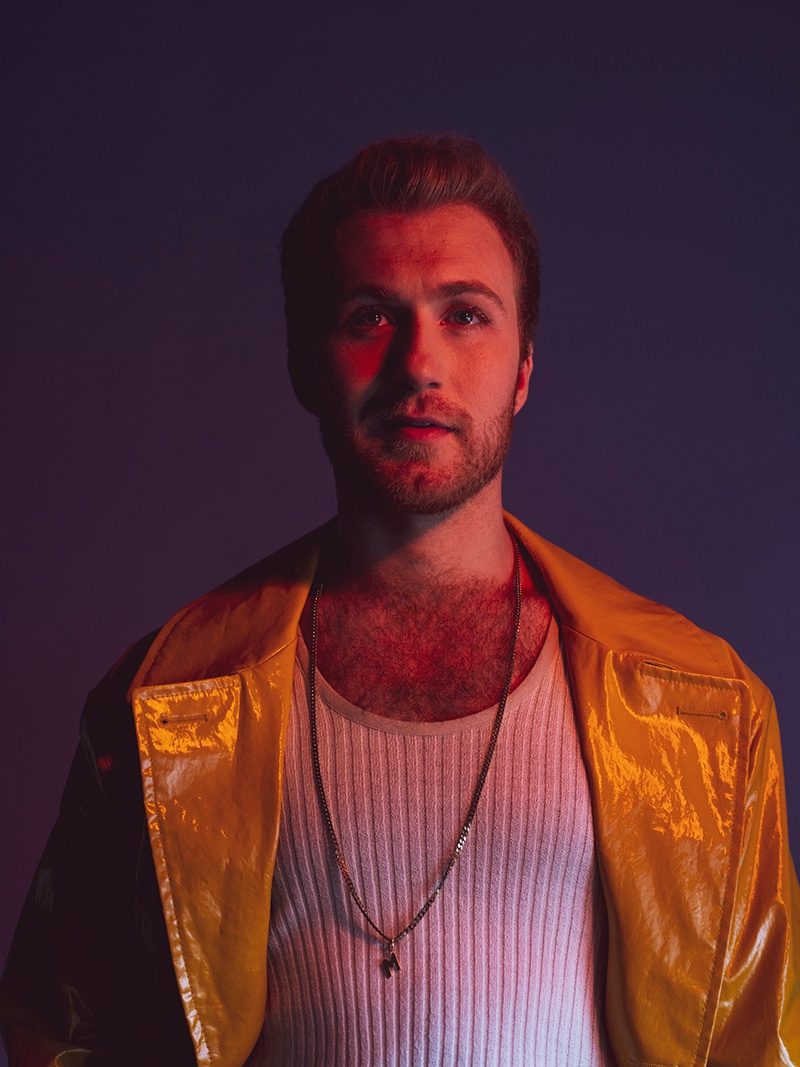
Acting and writing: which one came first?
I can’t do anything so, when I don’t get roles, I write instead. That’s why writing came after. Something also great about it is that obviously I can always play the main part, like in my show Son of Dyke that I am taking up to Edinburgh, and explore gay characters and make people see that we have the same existence — and arguably a much more interesting one — than, for instance, leading men from the 70s in the American cinema. Writing is also crucial because of that need to be validated I mentioned before, and it is important when you are different to make yourself heard in every way you can.
You changed the name of that show from The D Word to Son of Dyke after finding out the identity of your sperm donor, didn’t you?
What’s really lovely about Son of Dyke is that since I performed it the very first time in London, my own life has changed and so has the show. It is going to keep changing and I will carry on developing it right up to the point where I perform it because I am continually getting to know this character. Surely, there is a big danger when you make a show of your life, but I am exploring that a lot more now, metatheatricality. I have to be careful and safeguard myself and my own emotions. To be honest, when I met my sperm donor I stopped writing any of the show. I had to give myself about three weeks off because I was so confused, depressed, anxious and destroyed somehow. It’s been a horrible process, but also a very cathartic one. Writing itself is always painful and difficult, but then when you finish it’s the greatest feeling. Better than some sort of orgasm and heroin combined.
What about failure?
I am always failing as an actor because you go to an audition and you don’t get the job. And that’s a failure, but the way you react to failure is the barometer of success. And is as simple as that. We do all fail regularly and is it OK.
Is there something that made you learn how to react to failure?
The quantity of it. If you are an actor or a writer you are constantly getting rejected and you are very aware of living alongside that failure. So, after living with it you might as well let it in, see it is fine and find your internal strength. Moaning is also a failure. If you lose somebody you fail every day because you want to bring them back and you can’t. The pain will never get away so you have to live next to that pain. Also when you are trying to be masculine you always fail, because you are performing a version of masculinity that you think you should. We are driven by an ideal of success that we never reach, and the gap between that and where we are is a failure. That’s life. So, life is a form of failure and there is nothing wrong with that. Jean-Paul Sartre said: “He who fails wins”, and that’s what I think he meant by that.
I feel I should ask you something about fashion now…
I come from lesbians, so fashion wasn’t such a big part of my life. Lesbians have style more than fashion. What am I saying, that’s crap!
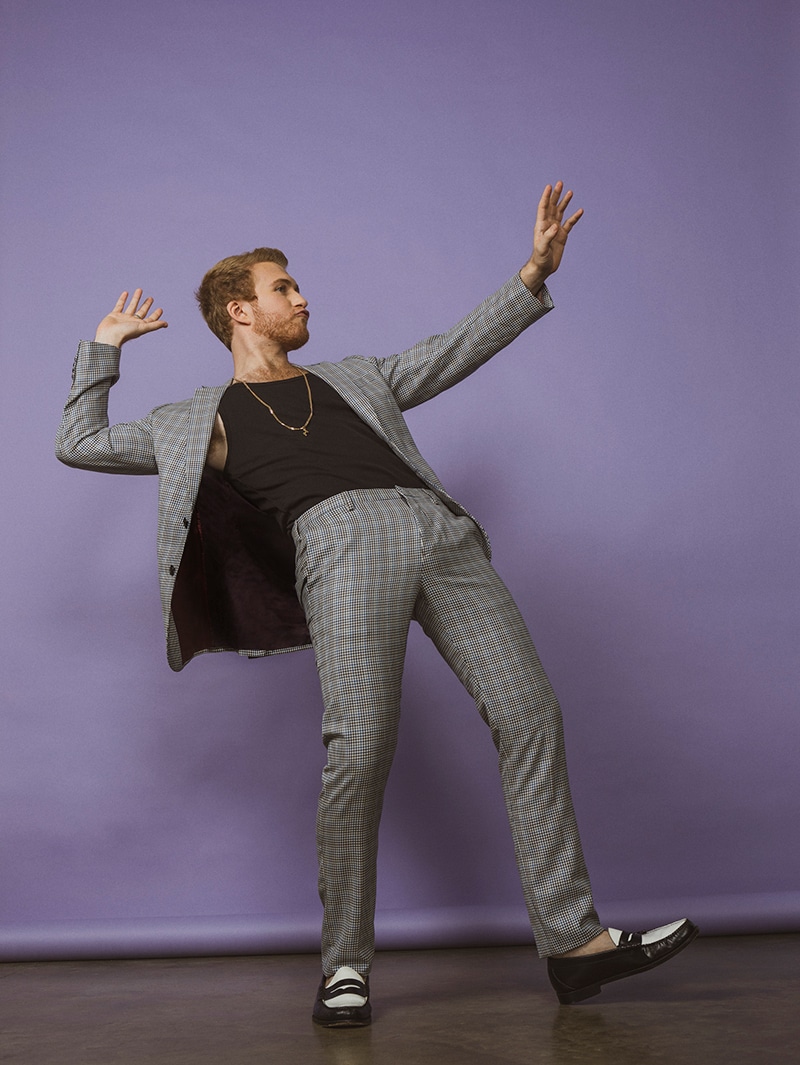
Jordan’s play, Son of Dyke, is on at the Edinburgh Fringe Festival Underbelly space from the 1st – 11th August. Tickets available now HERE.
Photography: Joseph Sinclair using Hasselblad
Styling: Emily Tighe at The Only Agency assisted by Poppy Norton
Grooming: Sergio Alveraz
Brands: Converse, Daniel w Fletcher, Gola, Hugo Boss, MSGM, Paul Smith, Uniqlo, Weejun
